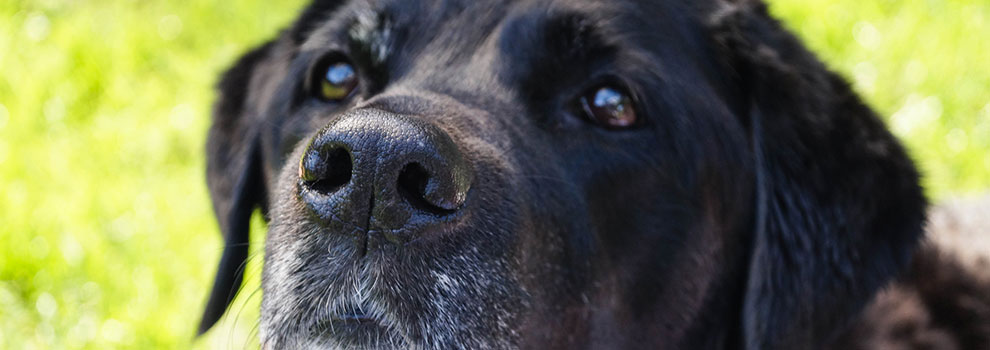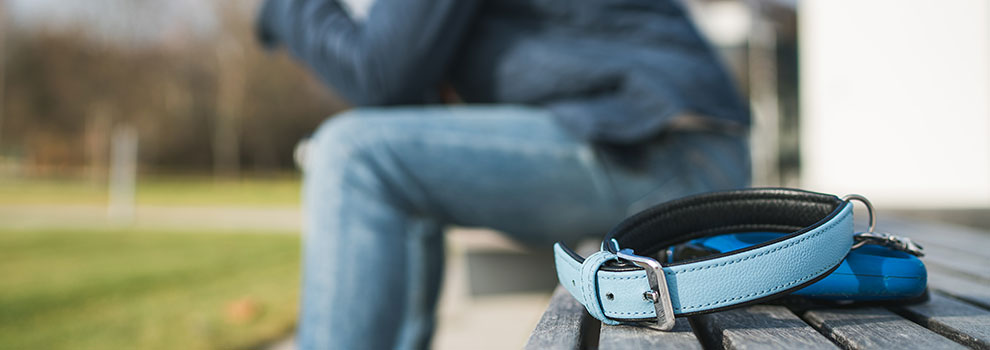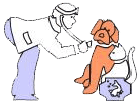When you lose a pet, you will probably deal with a lot of different emotions. Coping with the loss of a pet involves navigating intense emotions and finding ways to process grief. By understanding the stages of grief after losing a pet you can begin to move forward while keeping your pet’s memory alive.
Everyone goes through it and you’re not alone.
Understanding Grief By Losing A Pet

Grieving the loss of a pet can be as profound and complex as grieving any other significant loss. The emotional bond between pets and their owners often leads to a deep sense of sorrow, and understanding the nature of this grief is crucial for coping with it. The grief experienced from pet loss is unique, shaped by the strong relationships and daily routines that are abruptly altered, leaving a lasting impact on those left behind.
What Is Grief?
Grief is an emotional response triggered by the experience of loss. It encompasses a range of emotions, including sadness, anger, confusion, and even relief. The process of grieving is natural and varies greatly from person to person, depending on the nature of the loss and the individual’s coping mechanisms.
There are different types of grief that people may experience:
Anticipatory Grief: This type of grief occurs before the actual loss happens. For instance, when a pet is diagnosed with a terminal illness, owners may start grieving even before their pet passes away.
Disenfranchised Grief: This grief occurs when the loss is not openly acknowledged, socially validated, or publicly mourned. Pet loss often falls into this category because society sometimes downplays the significance of losing a pet.
Complicated Grief: When grief persists for a prolonged period or interferes significantly with daily life, it is considered complicated grief. This may happen if the person is deeply attached to their pet or the loss was sudden and traumatic.
Pet loss grief can be particularly intense because of the close, emotional benefit between pets and their owners. Pets often provide unconditional love and companionship, making their absence deeply felt. The routines and daily interactions shared with a pet become ingrained in a person’s life, which can make the loss all the more difficult to cope with.
Why Grief After Losing A Pet Is Unique
Pets are often viewed as family members. They share in everyday life, celebrations, and even hardships. The consistency and loyalty they offer can make their absence feel like losing a family member. This close bond means that when a pet passes away, the grief experienced is intense and deeply personal.
While some people understand and validate the grief that comes with losing a pet, others may dismiss it, considering it less significant than the loss of a human loved one. This can lead to disenfranchised grief, where the person mourning feels isolated or misunderstood. They may feel pressured to “move on” quickly or refrain from openly expressing their sorrow, which can hinder the natural grieving process.
The unique nature of pet loss grief lies in the combination of these factors: the depth of the bond, the role pets play in their owners’ lives, and the societal perceptions that often fail to acknowledge the validity of this type of grief.
The Five Stages of Grief After Losing A Pet

Grieving the loss involves moving through various emotional stages that help individuals process their pain. These stages: denial, anger, bargaining, depression, and acceptance are not linear and can be experienced in different orders or revisited multiple times. Each stage plays a crucial role in helping people gradually come to terms with their loss and find a path toward healing.
Denial
The denial stage is the first reaction to the loss and often serves as a protective mechanism to buffer the immediate shock. In this stage, individuals may struggle to accept the reality of their pet’s death. The mind attempts to defend itself from the overwhelming pain by refusing to acknowledge the loss fully.
People might find themselves thinking, “This can’t be happening” or “I just saw them yesterday”. There can be a feeling of numbness or disbelief, where the absence of the pet doesn’t seem real.
Some might continue with their usual routines, such as setting out food or expecting their pet to greet them at the door. This stage can also manifest in searching behaviors, where the individual might look for the pet in their usual spots, hoping that they are still around.
Denial is a temporary phase that helps people cope with the initial shock before they are ready to confront the full reality of their loss.
Anger
Anger is a common reaction after moving past the initial denial. This stage is characterized by feelings of frustration and helplessness. The anger may be directed at various targets, including oneself, others, or even the pet that has passed away. For example, an individual might feel anger towards a veterinarian for not doing enough or at themselves for not recognizing signs of illness earlier.
This stage often involves a lot of “why” questions, such as “Why did this happen?” or “Why couldn’t I have done more?”
The frustration comes from the inability to change the situation, leading to a sense of helplessness. Anger can also be misdirected, where a person lashes out at family members, friends, or other pets, even though they are not the cause of the pain.
It’s important to understand that this anger is a natural part of the grieving process and is often a way for the mind to release some of the intense emotions associated with loss.
Bargaining
The bargaining stage is marked by attempts to regain control or reverse the loss by making deals or promises, often with a higher power or through magical thinking. Individuals might replay scenarios in their minds, focusing on “if only” thoughts, such as “If only I had taken them to the vet sooner” or “If only I had noticed the signs earlier.”
This stage is characterized by a deep yearning to change the past. People may find themselves negotiating with the universe, thinking that if they had done something differently, their pet might still be alive.
These thoughts can be a way to cope with feelings of guilt or responsibility, as the person struggles to make sense of the loss. Bargaining is often accompanied by feelings of vulnerability and desperation, as the individual seeks any possible way to alter the outcome.
This stage can be distressing, as it involves dwelling on what cannot be changed, but it is a step towards coming to terms with reality.
Depression
Depression in the context of grief is a natural and expected response to the profound sadness of losing a pet. This stage is marked by feelings of deep loneliness, emptiness, and despair. The weight of the loss fully sets in, and individuals may feel overwhelmed by the realization that their pet is gone forever.
During this stage, physical symptoms such as fatigue, changes in appetite, and disrupted sleep patterns can occur. Emotionally, people might feel isolated, as if no one else understands their pain.
It can be challenging to find joy in enjoyable activities and some may withdraw from social interactions altogether. This stage is not a sign of clinical depression but rather a reflection of the profound sorrow that accompanies significant loss.
It’s essential during this time to seek support from loved ones, friends, or professional counselors to navigate through these intense emotions.
Acceptance
Acceptance is the final stage of grief, where individuals come to terms with the reality of their pet’s loss. This stage is not about being “okay” with the loss but rather about reaching a place of peace and understanding. People begin to acknowledge that their pet is no longer physically present, but the memories and love remain.
In this stage, individuals start to adjust to life without their pet. They might develop new routines or find ways to honor their pet’s memory. Acceptance does not mean that the grief is over, but it becomes more manageable.
It’s a time where the individual starts to look forward rather than being anchored in the past. Acceptance allows for healing and the possibility of moving forward while still cherishing the bond shared with the pet.
Coping Strategies for Pet Loss Grief

Coping with the loss of a pet requires intentional strategies to manage the overwhelming emotions that follow. By focusing on healthy ways to express grief, seeking support, and honoring the memory of the pet, individuals can navigate through their grief while finding comfort and eventually moving forward.
Expressing Emotions
Expressing emotions is a crucial part of the healing process after losing a pet. It’s important to allow yourself to feel and articulate your grief. Talking about your feelings with friends, family, or a counselor can provide comfort and validation.
Sharing memories and stories about your pet can help processing the loss.
Another effective way to express emotions is through writing. Consider writing letters to your pet, telling them how much they meant to you and how you’re coping with their absence. This can be a therapeutic exercise that allows you to channel your emotions constructively.
Keeping a grief journal is another option. In the journal, you can document your feelings, recount memories, and explore the stages of your grief journey. These written reflections can serve as a personal outlet for your sorrow and help you navigate through complex emotions.
By regularly expressing your feelings, you allow yourself to process grief in a healthy, manageable way.
Seeking Support
Finding a support system is vital when coping with pet loss grief. Support groups, whether in-person or online, can connect you with others who are going through similar experiences.
These communities offer a space to share stories, express feelings, and receive empathy from those who truly understand the depth of pet loss. Being part of such a group can reduce feelings of isolation and provide comfort through shared experiences.
Here are some pet loss support groups you can visit:
The Association for Pet Loss and Bereavement (APLB): Offers online chat support groups and resources for those grieving the loss of a pet.
Rainbows Bridge Pet Loss Grief Support: An online community offering grief support forums, chat rooms, and a memorial page to honor pets.
The Pet Loss Support Page: Offers resources including a message board, articles, and a directory of local pet loss support groups.
Pet Loss Grief Support – Facebook Group: A Facebook community where members can share their experiences and support through pet loss.
Helping Children Grieve the Loss of a Pet
Children process grief differently from adults, often expressing their emotions in varied ways depending on their age and understanding of death. Young children might not fully grasp the permanence of loss and may repeatedly ask questions like, “When is the pet coming back?” Older children, on the other hand, may understand the finality of death but struggle with feelings of guilt, anger, or sadness.
When discussing the death of a pet with a child, it’s important to use clear, honest language. Avoid euphemisms like “gone away” or “sleeping,” as these can be confusing. Explain that the pet has died, but emphasize that it’s natural to feel sad.
Encourage children to talk about their feelings.
To help children remember and honor their pet, involve them in age-appropriate activities. They could draw pictures of the pet, create a scrapbook with photos and memories, or help plant a flower or tree in the pet’s memory.
These activities allow children to express their grief and begin to heal while keeping the memory of their pet alive.
Moving Forward After Grieving Process

Healing after the loss of a pet takes time, and there’s no set timeline for grief. It’s important to acknowledge that everyone moves through grief at their own pace, and the process may take longer for some than for others.
There should be no pressure to “get over” the loss quickly.
Opening your heart to a new pet can be a difficult decision and one that should only be made when you feel ready. It’s essential to ensure that this decision comes from a place of love rather than a desire to replace the lost pet. A new pet will bring its own unique joy and challenges, and it’s okay to embrace this when the time feels right.
Cherishing the memories of your lost pet while making space for new experiences is a healthy way to move forward. The love and companionship you shared with your pet can coexist with the bonds you create with a new animal companion.
It’s perfectly normal to feel sadness for the pet you lost even as you welcome a new one into your life.
Frequently Asked Questions
What are the 5 stages of pet loss?
The 5 stages of pet loss are:
- Denial: Difficulty accepting the reality of the loss.
- Anger: Frustration and helplessness, often directed at oneself or others.
- Bargaining: Replaying scenarios and wishing to change the outcome.
- Depression: Deep sadness, loneliness, and withdrawal from activities.
- Acceptance: Coming to terms with the loss and finding a way to move forward.
How long does grief last after losing a pet?
Grief after losing a pet varies for everyone. Some may feel a deep sense of loss for weeks, while others might grieve for months or longer. There is no set timeline, as the duration depends on the individual’s bond with their pet, coping mechanisms, and personal circumstances. It’s important to allow yourself to grieve without pressure to “move on” quickly.
Why does losing a pet hurt so much?
Losing a pet hurts deeply because pets provide unconditional love, companionship, and emotional support. They are integral parts of daily life, offering comfort and consistency. Their absence creates a void, disrupting routines and leaving people feeling lonely and heartbroken. The bond with a pet is often as strong as with family members, making their loss profoundly painful.
How to grieve over the loss of a pet?
Grieving over the loss of a pet is a deeply personal process, and taking specific steps can help navigate the complex emotions involved:
- Acknowledge Your Grief: Accept that it’s okay to feel sad and that your feelings are valid.
- Express Your Emotions: Talk to friends, family, or a counselor. Write in a journal or compose letters to your pet.
- Create a Memorial: Honor your pet’s memory by creating a photo album, planting a tree, or holding a small ceremony.
- Seek Support: Join a pet loss support group, either in person or online, to connect with others who understand your pain.
- Take Care of Yourself: Allow yourself time to heal, and don’t rush the grieving process. Engage in self-care activities that help you cope.
 All About Pets
All About Pets 

